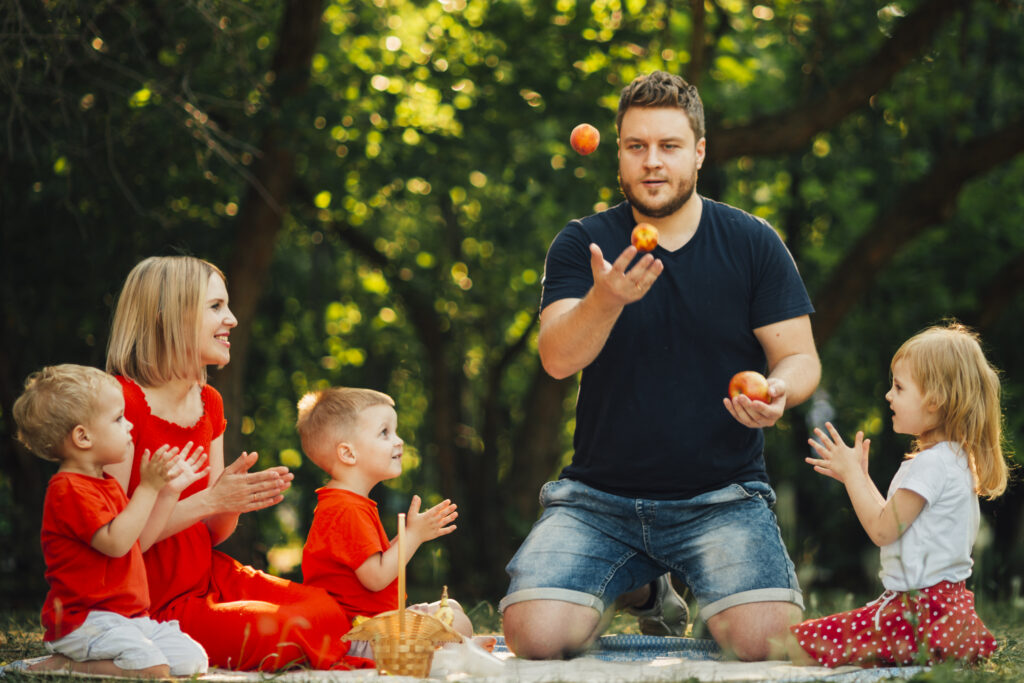Birth Order and Personality: Understanding Your Child’s Unique Traits

Birth order has long been a topic of fascination among parents and psychologists alike. It’s believed that a child’s position within the family—whether they’re the firstborn, middle child, or youngest—can influence their personality, behavior, and even the dynamics of their relationships. While every child is unique, understanding the general patterns associated with birth order can help parents foster stronger connections and create a harmonious family environment. Firstborn: The Responsible Leader Firstborn children often take on the role of the leader within the family. As the eldest, they tend to be more responsible, organized, and achievement-oriented. Parents often place higher expectations on firstborns, which can lead to traits like perfectionism and a strong drive for success. These children may also develop nurturing tendencies, stepping into a “mini-parent” role for their younger siblings. Key Traits of Firstborns: Parenting Tip: Encourage firstborns to relax and enjoy activities that allow them to unwind, such as activities for toddlers if they’re young or hobbies that don’t involve competition. Ensure they know it’s okay to make mistakes and prioritize fun alongside responsibility. Middle Child: The Diplomatic Peacemaker Middle children often find themselves in the role of mediator, balancing relationships between their older and younger siblings. They tend to be adaptable, social, and empathetic, as they’ve grown up navigating family dynamics. Middle children may seek their own identity outside of their siblings, often pursuing unique interests or friendships. Key Traits of Middle Children: Parenting Tip: During a family meeting, give middle children the opportunity to share their thoughts and feelings. This helps them feel valued and ensures their voice isn’t lost in the shuffle. Celebrate their unique interests to reinforce their individuality. Youngest Child: The Free-Spirited Charmer The youngest child often takes on the role of the family’s entertainer or free spirit. With older siblings to pave the way, the youngest tends to enjoy a more relaxed set of expectations. They’re often charming, creative, and adventurous but may also rely on others for support or decision-making. Key Traits of Youngest Children: Parenting Tip: While fostering the youngest child’s creativity, provide structure and encourage independence. Balancing freedom with responsibility ensures they grow into confident, capable individuals. How Birth Order Impacts Family Dynamics Understanding birth order can help parents create a harmonious family environment by recognizing and addressing the unique needs of each child. This aligns with mindful parenting, which encourages being present and attuned to your children’s emotional and developmental cues. Conscious co-parenting can also play a significant role in balancing dynamics. By collaborating on how to address each child’s individual needs, parents can reduce sibling rivalry and ensure that every child feels equally loved and supported. Tips for Navigating Birth Order Dynamics Stay Informed and Connected For more tips and insights on parenting strategies and child development, follow us on Instagram and YouTube. We share expert advice, practical tools, and real-life stories to empower your parenting journey. To stay updated on the latest research and resources, check out our press releases here for the most recent information on family dynamics and child behavior. Final Thoughts: Embracing the Unique Traits of Each Child Birth order provides a fascinating lens through which to view your children’s personalities, but it’s only one piece of the puzzle. By understanding their unique traits and tailoring your approach, you can nurture their growth, foster stronger relationships, and create a family environment where everyone thrives. Celebrate your firstborn’s leadership, your middle child’s diplomacy, and your youngest’s creativity. Together, these qualities make your family dynamic rich and special. Parenting is a journey, and with a little insight and intentionality, you can guide your children to become the best versions of themselves.

